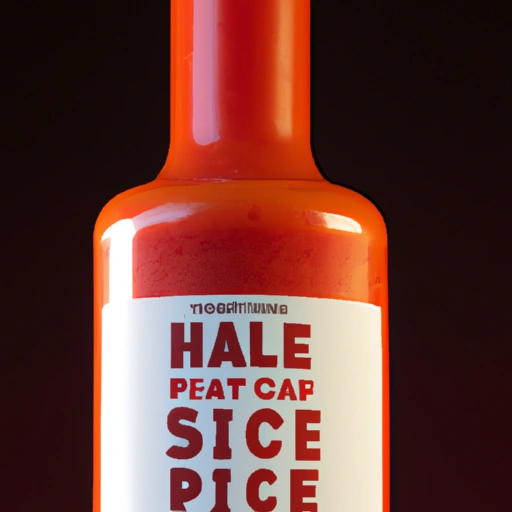Hot Pepper Sauce
Description

Hot pepper sauce, a spicy condiment made from chili peppers mixed with ingredients such as vinegar, salt, and sometimes fruits or vegetables, is a staple in many kitchens worldwide. It ranges from mild to extremely spicy, depending on the type of peppers used and the preparation method. Hot pepper sauce is an essential ingredient for those looking to add a kick of heat and depth of flavor to their dishes.
Common uses
Hot pepper sauce is commonly used as a condiment or ingredient to elevate the heat and flavor of various dishes. It can be drizzled over foods, used as a marinade, incorporated into dips and dressings, or added to cooking processes to infuse dishes with its distinctive spicy tang.
Nutritional value
Calories
A typical serving of hot pepper sauce (1 teaspoon or about 5 milliliters) contains approximately 0 to 5 calories, making it a low-calorie addition to meals.
Protein
Hot pepper sauce provides a negligible amount of protein, typically less than 1 gram per serving.
Fat
Most hot pepper sauces are fat-free, containing 0 grams of fat per serving.
Carbohydrates
Carbohydrates in hot pepper sauce are minimal, generally less than 1 gram per serving, with some of that coming from natural sugars found in the peppers and added ingredients.
Vitamins
While used in small amounts, hot pepper sauce contains vitamins such as Vitamin C and Vitamin A, which are naturally present in chili peppers.
Minerals
Minerals such as potassium and magnesium can also be found in trace amounts in hot pepper sauce.
Health benefits
Hot pepper sauce contains capsaicin, the compound that gives chili peppers their heat. Capsaicin has been studied for its potential health benefits, including pain relief, reducing inflammation, and boosting metabolism. Additionally, the antioxidants in chili peppers may contribute to overall health when consumed as part of a balanced diet.
Potential risks
While hot pepper sauce can be a healthy addition to a diet, overconsumption may lead to gastric discomfort or exacerbate conditions such as acid reflux. Individuals with a sensitivity to spicy foods should use caution. Moreover, some commercial hot sauces may contain high levels of sodium, which can be a concern for those monitoring their salt intake.
Common recipes
Hot pepper sauce is a versatile ingredient featured in recipes such as Buffalo wings, chili, stews, soups, marinades for meats, and seafood dishes. It is also a key component in various salsas and hot dips.
Cooking methods
This sauce can be used during cooking to imbue dishes with heat or applied after cooking as a finishing touch. It is also a common table condiment, allowing individuals to adjust the spice level of their meal to their preference.
Pairing with other ingredients
Hot pepper sauce pairs well with creamy or cheesy dishes that balance its heat, such as macaroni and cheese or ranch dressing. It also complements the flavors of grilled meats, seafood, and vegetables.
Summary
Hot pepper sauce is a dynamic and globally beloved condiment, valued for its ability to enhance a myriad of dishes with its piquant flavor. From its complex historical evolution to its multifaceted culinary applications and potential health benefits, hot pepper sauce continues to be a favorite amongst chefs and food enthusiasts alike. Whether used sparingly or liberally, it is sure to add a burst of excitement to any meal.